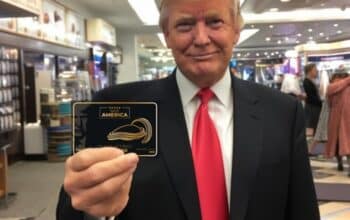Legal action was promised when five of the 10 Republican candidates were disqualified from Michigan’s gubernatorial race on May 26.
On May 27, Oakland County entrepreneur Perry Johnson, one of the disqualified candidates, filed a lawsuit in the Michigan Court of Appeals, asking the court to require that the Michigan Board of State Canvassers certify him for the August 2 primary ballot.
Johnson and retired Detroit Police Chief James Craig are considered front-runners, according to GOP primary polling.
Johnson, Craig, Grand Haven financial adviser Michael Markey Jr., Byron Center businesswoman Donna Brandenburg, and Stevensville Michigan State Police Captain Mike Brown were disqualified from the primary for not submitting at least 15,000 valid signatures from registered voters.
Five other Republicans running for governor—Kevin Rinke, Garrett Soldano, Ryan Kelley, Ralph Rebandt, and Tudor Dixon—were approved to appear on the ballot.
Brown announced he would withdraw from the race while the other four disqualified candidates vowed they would fight the ruling. Johnson was the first of the four to proceed with legal action. Craig and Markey have promised they also will file lawsuits to get on the ballot.
“We are confident that when the law is justly applied, our campaign will be on the ballot this August,” Craig said in a statement.
In his lawsuit, Johnson asked for expedited consideration by June 1 because the state must know who is on the ballot by June 3 so the process of proofreading and printing absentee ballots can begin.
Mailing of absentee ballots is slated to start on June 18.
Keeping the candidates off the ballot is “the right result, because there was clearly overwhelming evidence of forgery on a massive scale on both of their petitions.” Mark Brewer, an attorney who challenged Craig’s signatures on behalf of the Michigan Democratic Party, told Bridge Michigan news organization about Craig and Johnson.
Brewer said via Twitter, “What kind of message does it send if any candidate with forged signatures is allowed on the ballot? Michigan must have zero tolerance for forgery: All candidates must be disqualified, and all circulators and anyone who knew about forgery must be prosecuted.”
According to the state’s review, 36 petition circulators forged approximately 68,000 signatures for 10 candidates in multiple races, signing random names on petition sheets, MLive reported.
The state inspected every signature, according to MLive, but it only compared 7,000 of the 68,000 believed to be fraudulent against the state’s Qualified Voter File, which has images of signatures from every registered voter.
The Bureau of Elections did not discover any matching signatures among the Qualified Voter File and opted to toss out all of the other signatures for the 36 petition circulators suspected of fraud.
The state should review all 68,000 signatures and not dispose of signatures just because they are gathered by a fraudulent circulator, the candidates argue.
“The invalidity of one or more signatures on a petition does not affect the validity of the remainder of the signatures on the petition,” according to Michigan Election Law (MCL 168.544c).
The law also says that signatures can be made invalid without checking them against the Qualified Voter File if evidence shows that a false statement was made on a petition.
In its 336-page complaint to the Court of Appeals, Johnson’s team called the decision a “shotgun approach.”
This is an excerpt from The Epoch Times.




